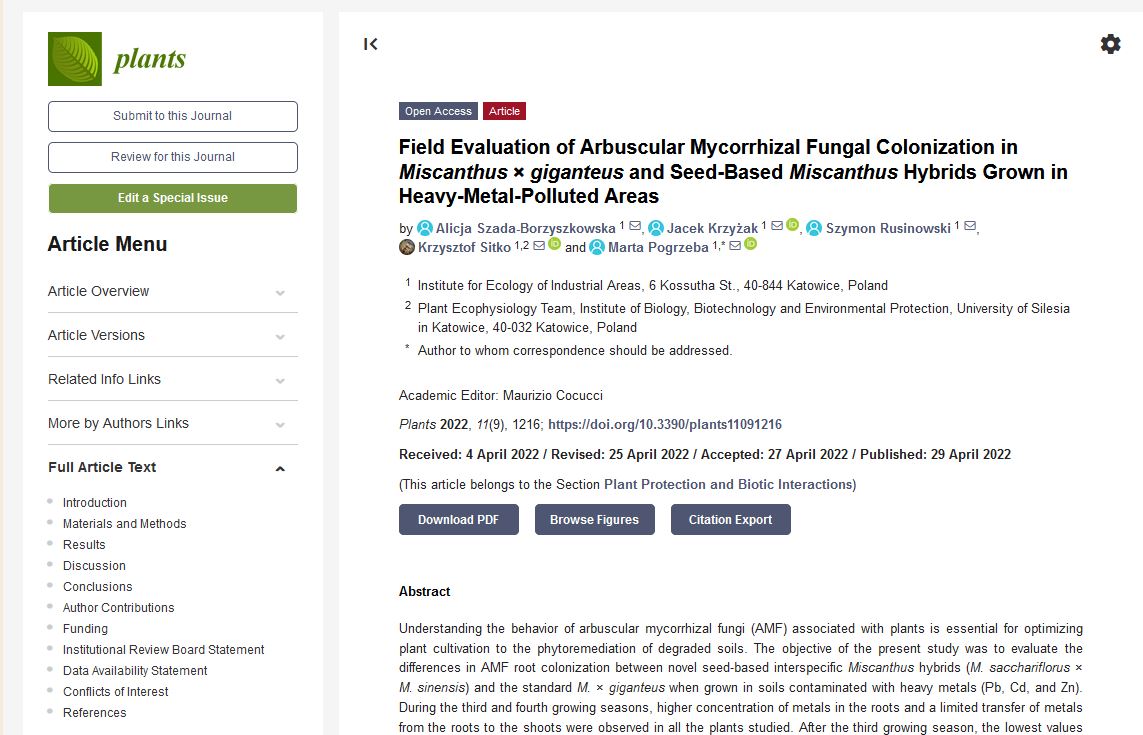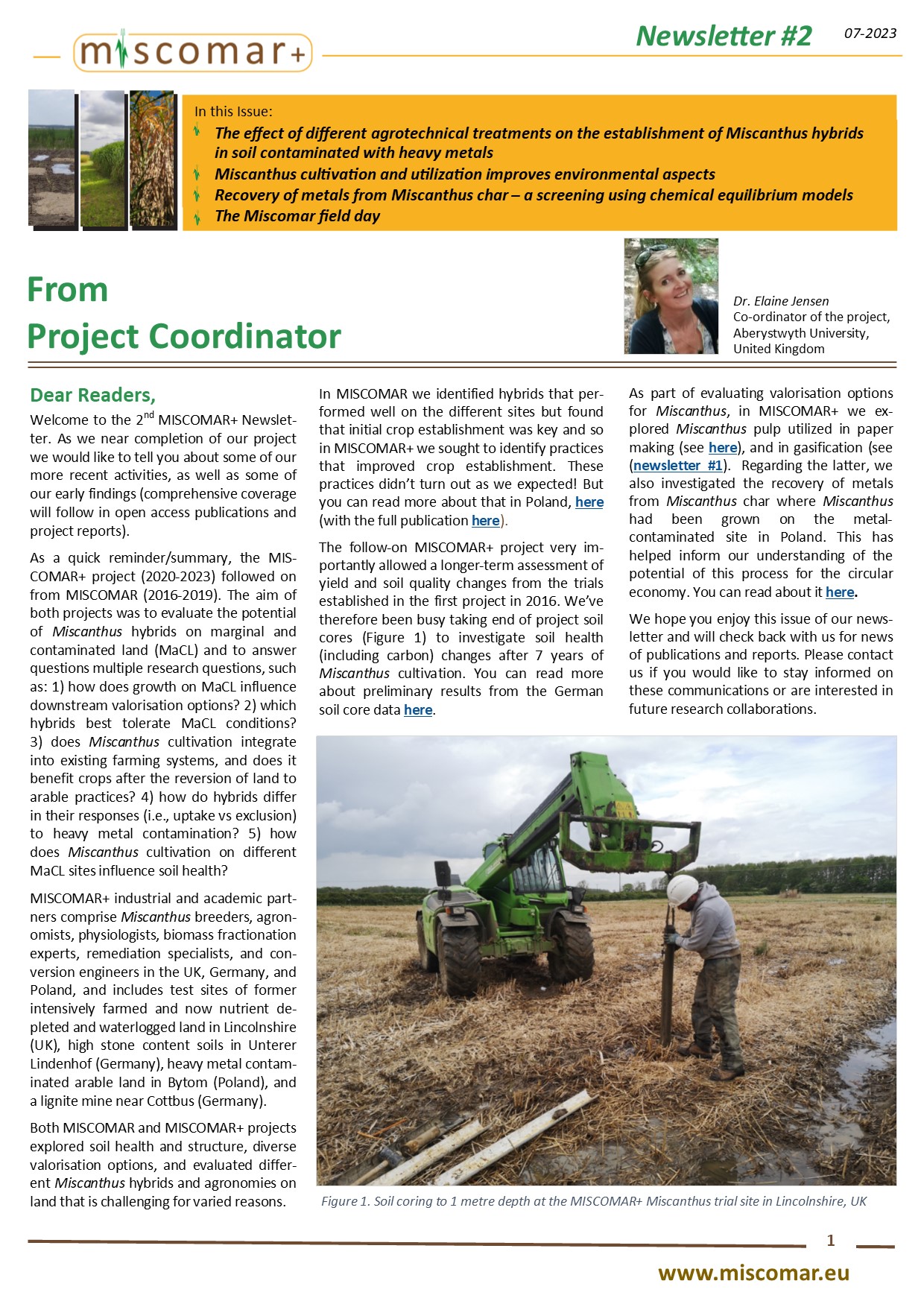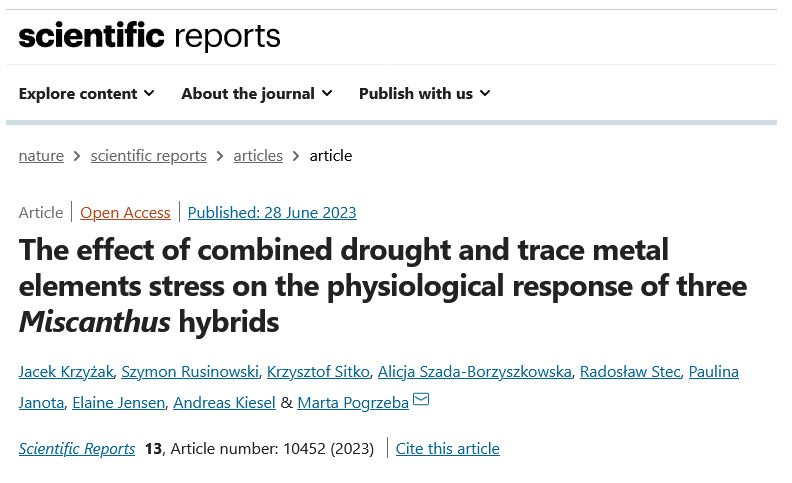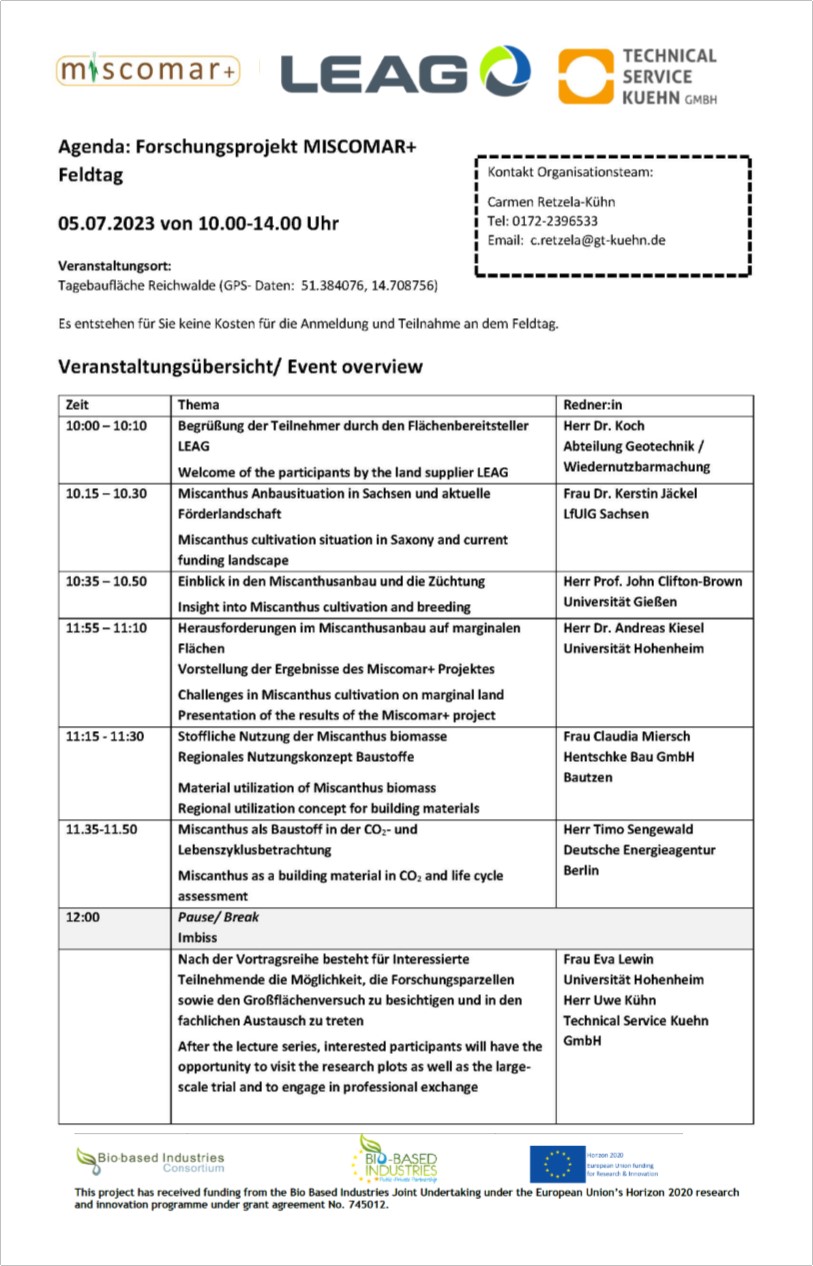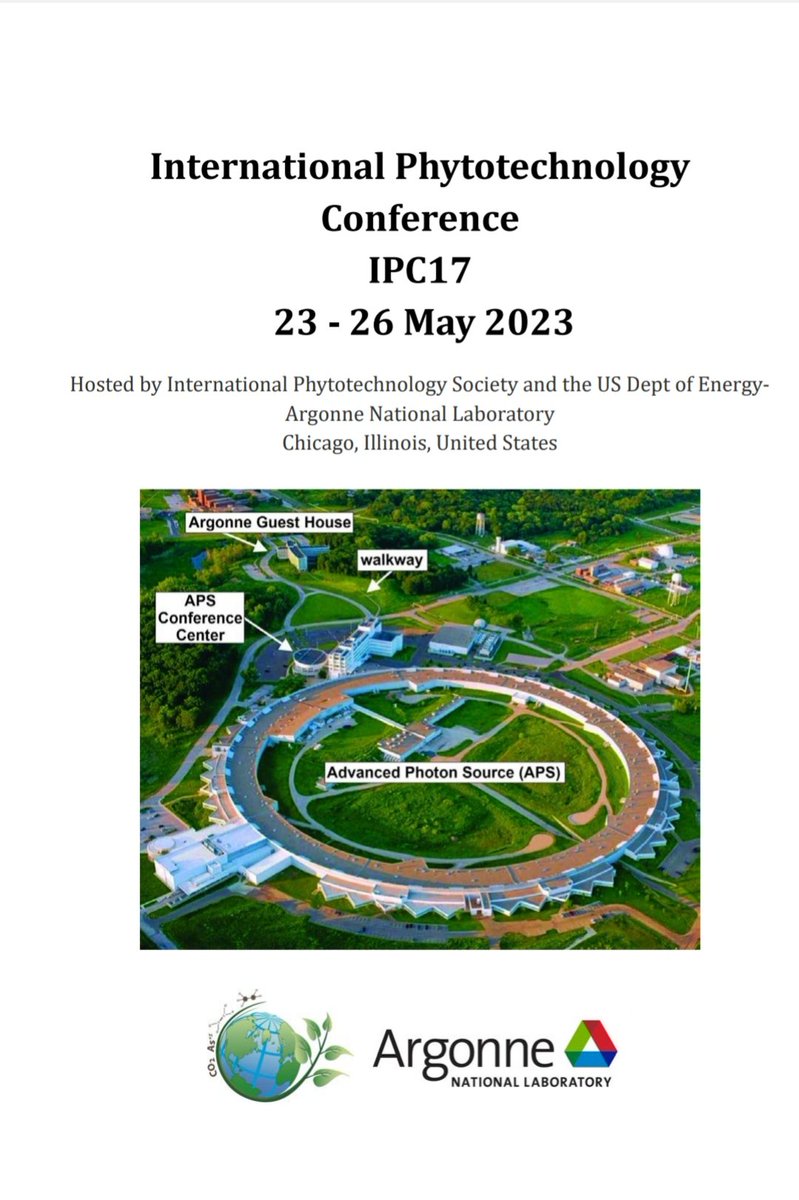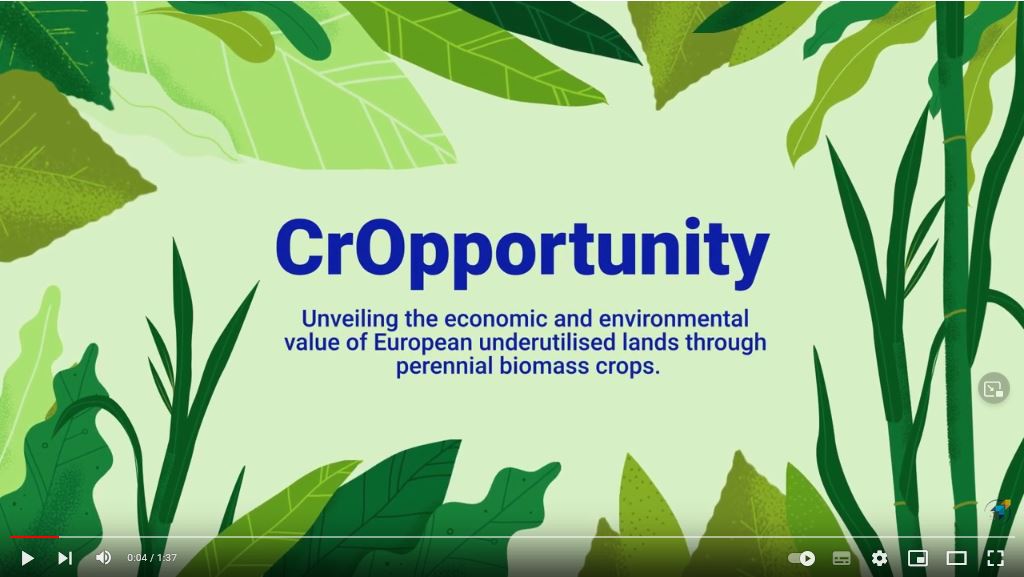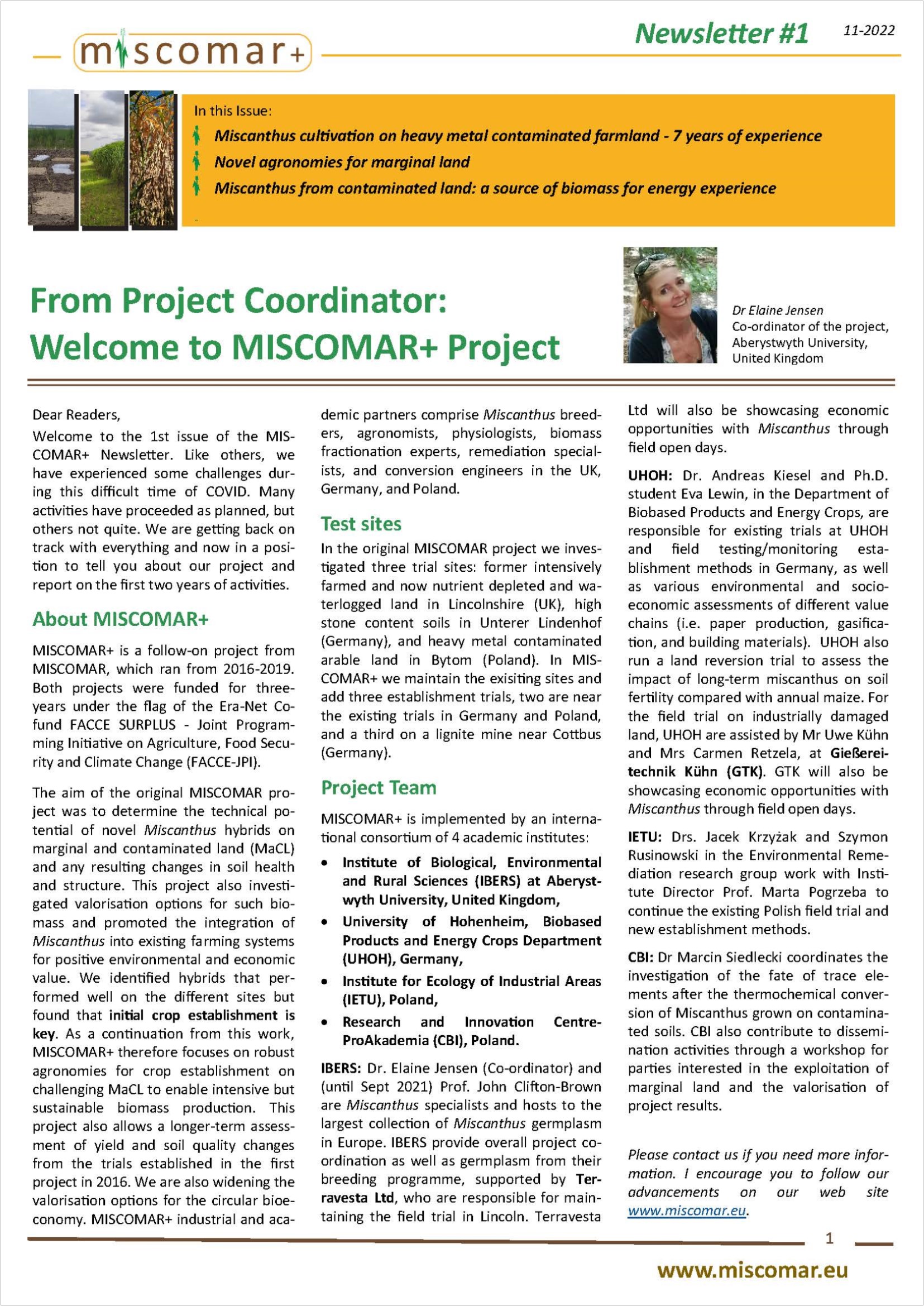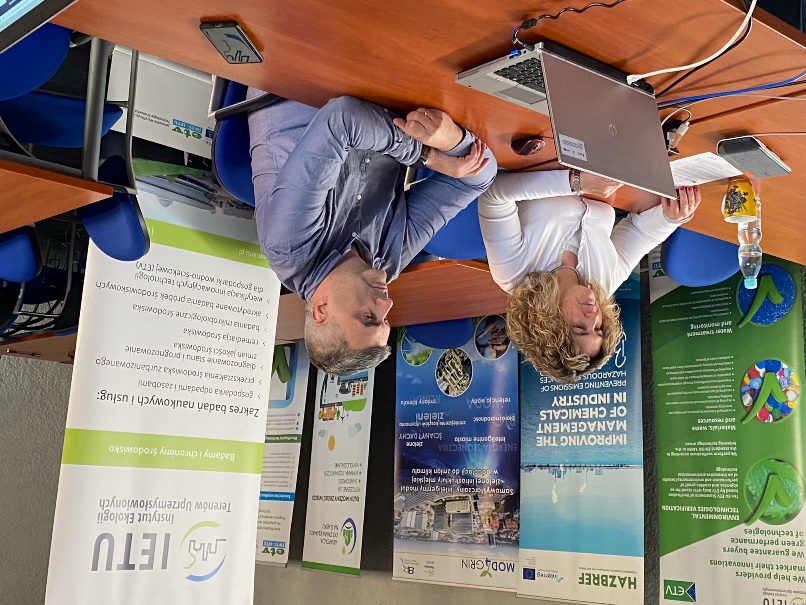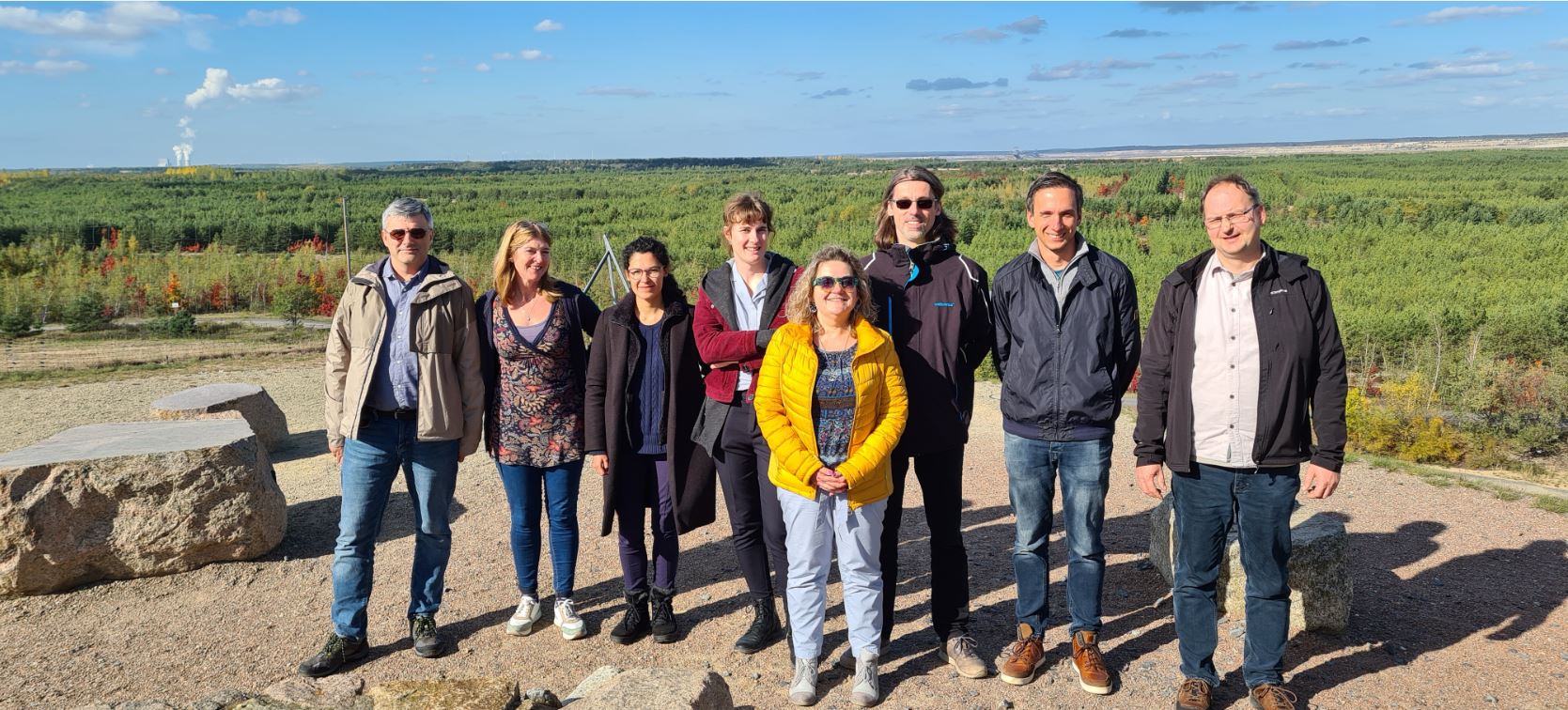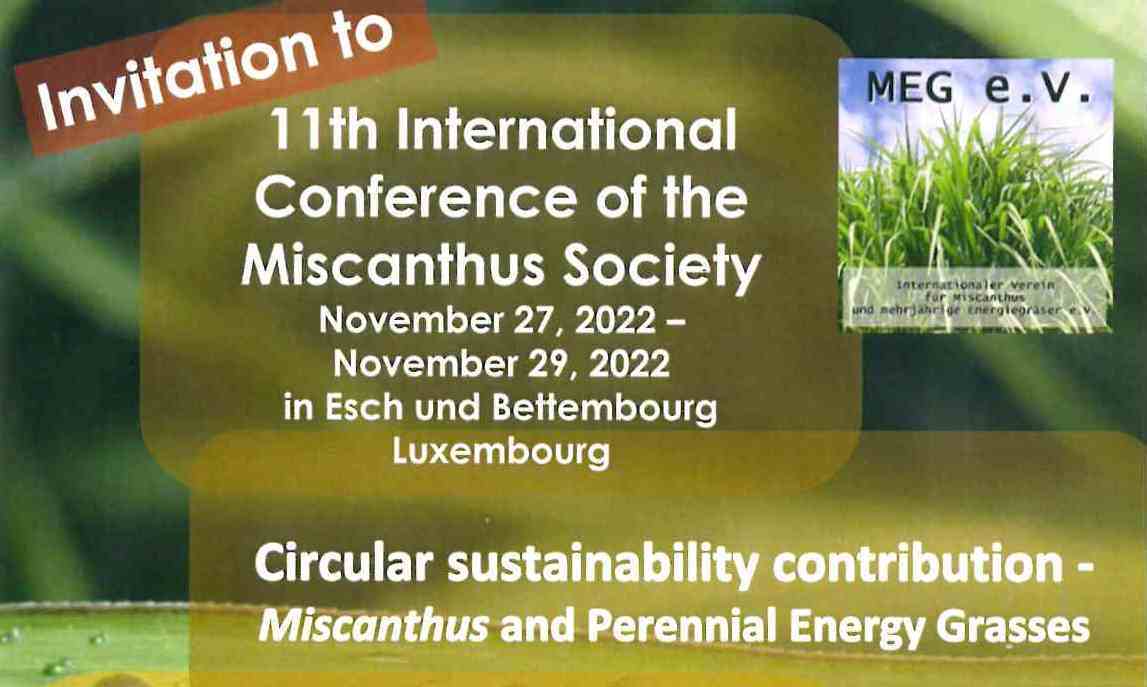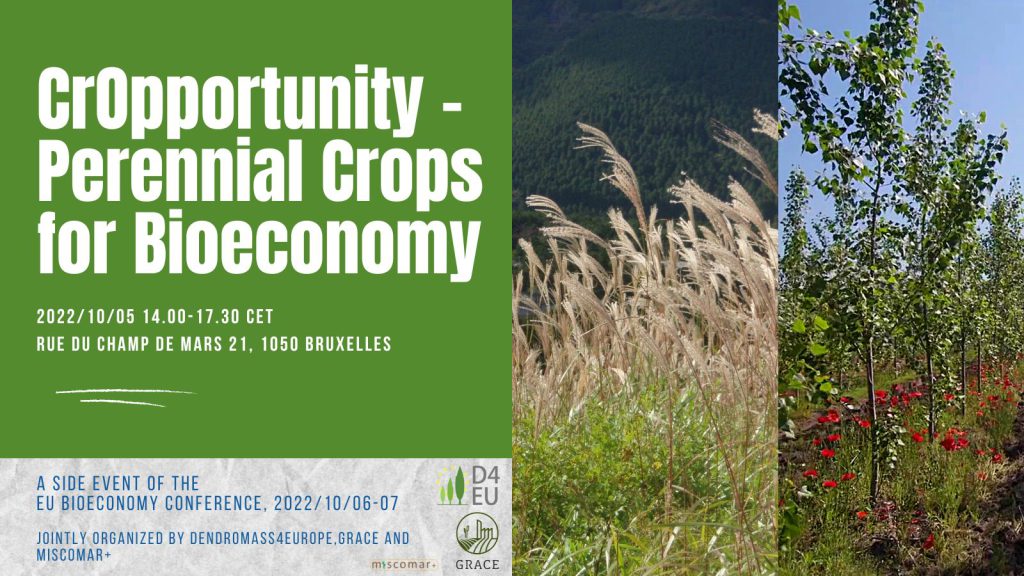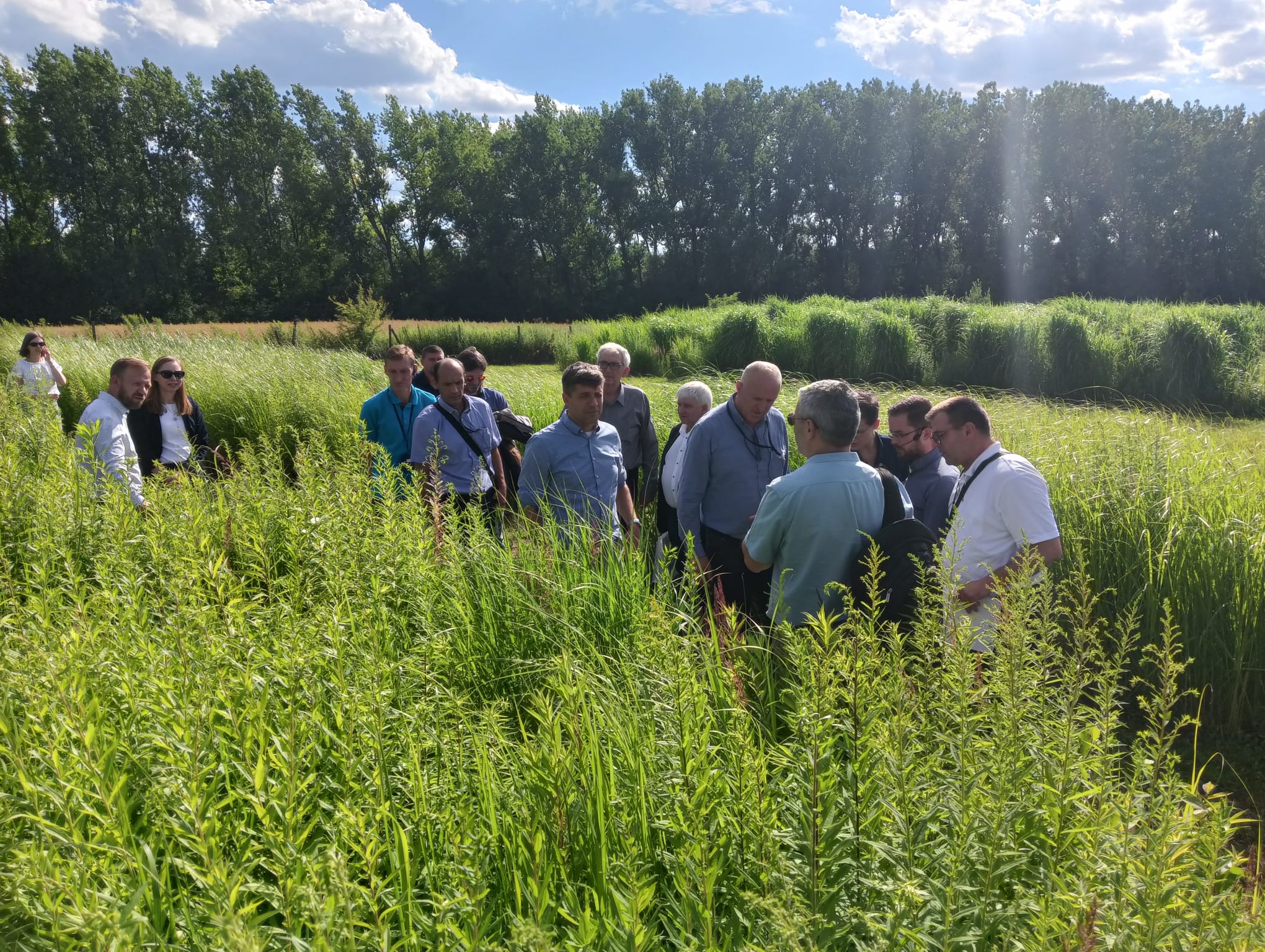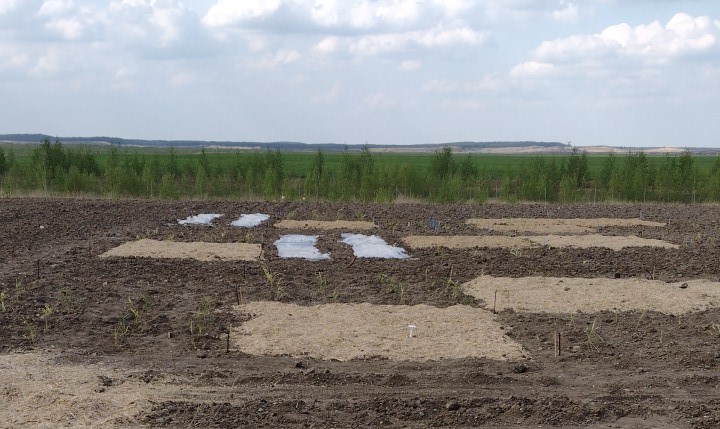An international scientific journal - Plants, has published an paper about the MISCOMAR project:
Field Evaluation of Arbuscular Mycorrhizal Fungal Colonization in Miscanthus × giganteus and Seed-Based Miscanthus Hybrids Grown in Heavy-Metal-Polluted Areas
Szada-Borzyszkowska A.; Krzyżak J.; Rusinowski S.; Sitko K., Pogrzeba M.
Plants, Vol. 11, 1216, 2022
Abstract
Understanding the behavior of arbuscular mycorrhizal fungi (AMF) associated with plants is essential for optimizing plant cultivation to the phytoremediation of degraded soils. The objective of the present study was to evaluate the differences in AMF root colonization between novel seed-based interspecific Miscanthus hybrids (M. sacchariflorus × M. sinensis) and the standard M. × giganteus when grown in soils contaminated with heavy metals (Pb, Cd, and Zn). During the third and fourth growing seasons, higher concentration of metals in the roots and a limited transfer of metals from the roots to the shoots were observed in all the plants studied. After the third growing season, the lowest values of AMF colonization rates were observed for the GNT34 hybrid. After the fourth growing season, AMF colonization decreased, which could be due to the drought that occurred during that season. GNT34 showed a lower tendency to develop mycorrhizal structures on heavy-metal (HM)-contaminated soils than GNT41 and M × g; however, this hybrid was insensitive to changes in colonization rates during the dry growing season.
Keywords: indigenous microorganisms; arbuscular mycorrhiza; phytoremediation; heavy metals; energy crops; Miscanthus
